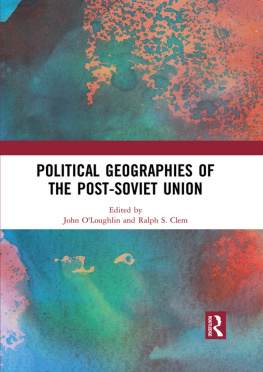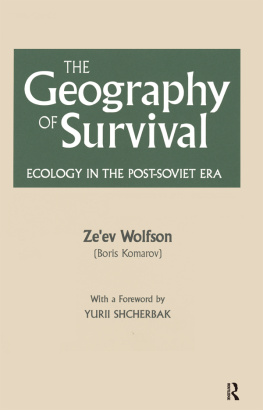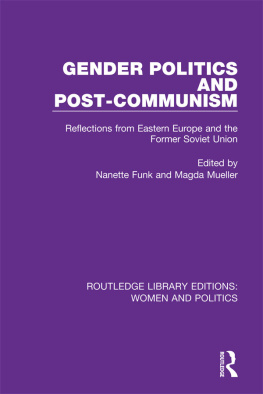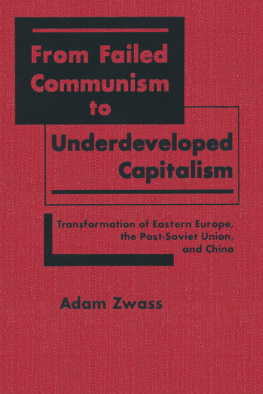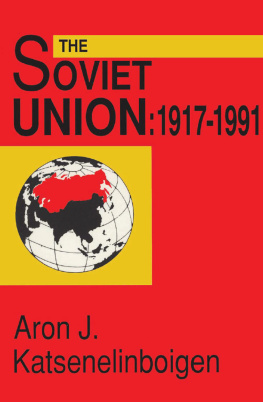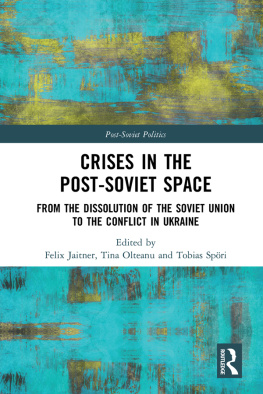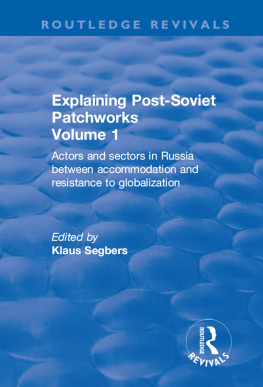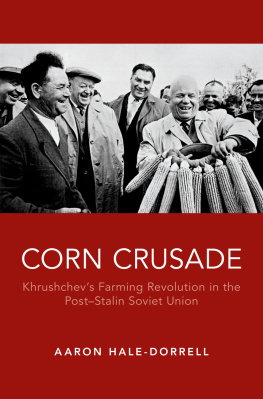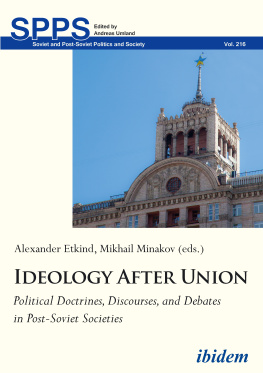John OLoughlin - Political Geographies of the Post-Soviet Union
Here you can read online John OLoughlin - Political Geographies of the Post-Soviet Union full text of the book (entire story) in english for free. Download pdf and epub, get meaning, cover and reviews about this ebook. year: 2020, publisher: Routledge, genre: Politics. Description of the work, (preface) as well as reviews are available. Best literature library LitArk.com created for fans of good reading and offers a wide selection of genres:
Romance novel
Science fiction
Adventure
Detective
Science
History
Home and family
Prose
Art
Politics
Computer
Non-fiction
Religion
Business
Children
Humor
Choose a favorite category and find really read worthwhile books. Enjoy immersion in the world of imagination, feel the emotions of the characters or learn something new for yourself, make an fascinating discovery.
- Book:Political Geographies of the Post-Soviet Union
- Author:
- Publisher:Routledge
- Genre:
- Year:2020
- Rating:4 / 5
- Favourites:Add to favourites
- Your mark:
- 80
- 1
- 2
- 3
- 4
- 5
Political Geographies of the Post-Soviet Union: summary, description and annotation
We offer to read an annotation, description, summary or preface (depends on what the author of the book "Political Geographies of the Post-Soviet Union" wrote himself). If you haven't found the necessary information about the book — write in the comments, we will try to find it.
Political Geographies of the Post-Soviet Union — read online for free the complete book (whole text) full work
Below is the text of the book, divided by pages. System saving the place of the last page read, allows you to conveniently read the book "Political Geographies of the Post-Soviet Union" online for free, without having to search again every time where you left off. Put a bookmark, and you can go to the page where you finished reading at any time.
Font size:
Interval:
Bookmark:
- Editorial: political geographies of the post-Soviet Uniona farewell to Eurasian Geography and Economics from the editors
- John OLoughlin and Ralph S. Clem
- Whilst the book chapter has been updated, the original version was published in Eurasian Geography and Economics, volume 58, issue 6 (December 2017), pp. 587591
- Who identifies with the Russian World? Geopolitical attitudes in southeastern Ukraine, Crimea, Abkhazia, South Ossetia, and Transnistria
- John OLoughlin, Gerard Toal and Vladimir Kolosov
- Eurasian Geography and Economics, volume 57, issue 6 (December 2016), pp. 745778
- The Eurasian Economic Union: the geopolitics of authoritarian cooperation
- Sean Roberts
- Eurasian Geography and Economics, volume 58, issue 4 (August 2017), pp. 418441
- The US Silk Road: geopolitical imaginary or the repackaging of strategic interests?
- Marlene Laruelle
- Eurasian Geography and Economics, volume 56, issue 4 (August 2015), pp. 360375
- Benevolent hegemon, neighborhood bully, or regional security provider? Russias efforts to promote regional integration after the 20132014 Ukraine crisis
- Andrej Krickovic and Maxim Bratersky
- Eurasian Geography and Economics, volume 57, issue 2 (April 2016), pp. 180202
- (Dis-)integrating Ukraine? Domestic oligarchs, Russia, the EU, and the politics of economic integration
- Julia Langbein
- Eurasian Geography and Economics, volume 57, issue 1 (February 2016), pp. 1942
- Building identities in post-Soviet de facto states: cultural and political icons in Nagorno-Karabakh, South Ossetia, Transdniestria, and Abkhazia
- John OLoughlin and Vladimir Kolosov
- Eurasian Geography and Economics, volume 58, issue 6 (December 2017), pp. 691715
- The decline and shifting geography of violence in Russias North Caucasus, 20102016
- Edward C. Holland, Frank D.W. Witmer and John OLoughlin
- Eurasian Geography and Economics, volume 58, issue 6 (December 2017), pp. 613641
- Clearing the Fog of War: public versus official sources and geopolitical storylines in the Russia-Ukraine conflict
- Ralph S. Clem
- Eurasian Geography and Economics, volume 58, issue 6 (December 2017), pp. 592612
- Cleavages, electoral geography, and the territorialization of political parties in the Republic of Georgia
- David Sichinava
- Eurasian Geography and Economics, volume 58, issue 6 (December 2017), pp. 670690
- The political geographies of religious sites in Moscows neighborhoods
- Meagan Todd
- Eurasian Geography and Economics, volume 58, issue 6 (December 2017), pp. 642669
Font size:
Interval:
Bookmark:
Similar books «Political Geographies of the Post-Soviet Union»
Look at similar books to Political Geographies of the Post-Soviet Union. We have selected literature similar in name and meaning in the hope of providing readers with more options to find new, interesting, not yet read works.
Discussion, reviews of the book Political Geographies of the Post-Soviet Union and just readers' own opinions. Leave your comments, write what you think about the work, its meaning or the main characters. Specify what exactly you liked and what you didn't like, and why you think so.

